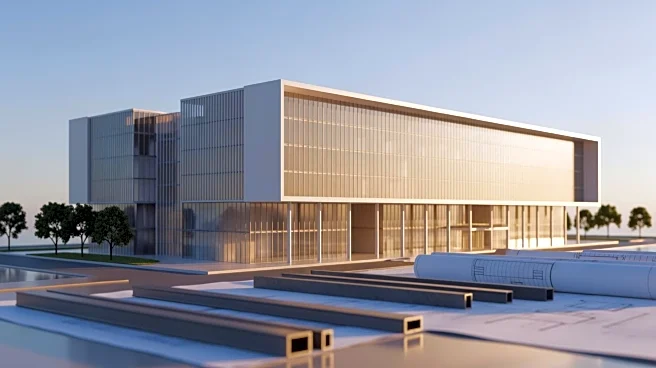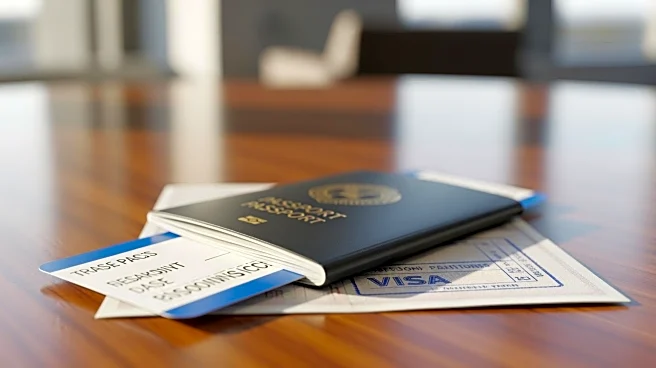What is the story about?
What's Happening?
The United States has announced the denial and revocation of visas for members of the Palestine Liberation Organization (PLO) and the Palestinian Authority (PA) ahead of the United Nations General Assembly meeting scheduled for September. This decision means that Palestinian Authority President Mahmoud Abbas may not be able to travel to New York to deliver his customary address at the annual gathering. The move follows the imposition of US sanctions on Palestinian Authority officials and PLO members in July. The US State Department stated that the Palestinian Authority's mission to the UN would not be affected by these restrictions, although no further details were provided.
Why It's Important?
The US decision to deny visas to Palestinian officials is significant as it underscores the ongoing tensions between the United States and Palestinian leadership. This action could impact diplomatic relations and efforts towards peace negotiations in the region. The denial of visas may hinder Palestinian representation at international forums, potentially affecting their ability to advocate for statehood and address grievances. The move aligns with US policy to hold the PLO and PA accountable for actions perceived as undermining peace prospects, which could influence future diplomatic engagements and negotiations.
What's Next?
The upcoming UN General Assembly meeting will proceed without the presence of key Palestinian officials, which may alter the dynamics of discussions related to Middle Eastern peace and Palestinian statehood. The US decision may prompt reactions from other international stakeholders, including countries advocating for Palestinian recognition. The Palestinian Authority may seek alternative diplomatic channels to voice their concerns and pursue their objectives. Additionally, the situation could lead to increased tensions and further complicate peace efforts in the region.
Beyond the Headlines
The US visa denial raises questions about the balance between national security interests and international diplomatic obligations. Under the 1947 UN headquarters agreement, the US is generally required to allow access for foreign diplomats to the UN in New York, but exceptions are made for security, terrorism, and foreign policy reasons. This decision may set a precedent for how the US handles diplomatic access in the future, potentially affecting other international relations and engagements.















